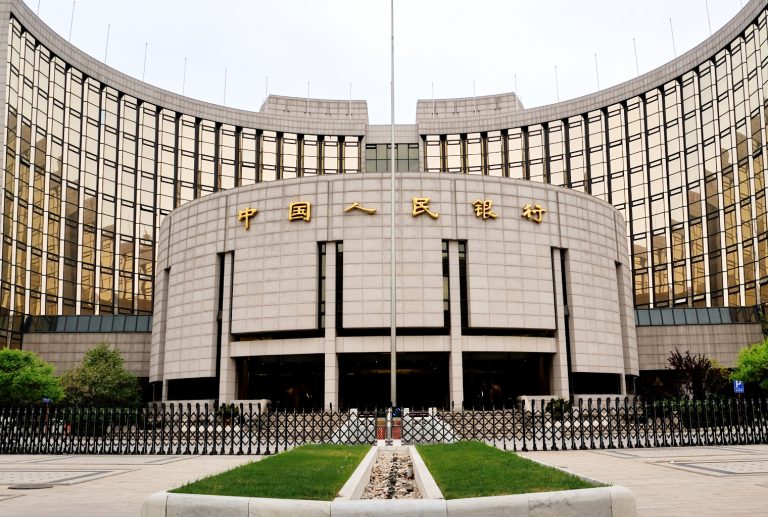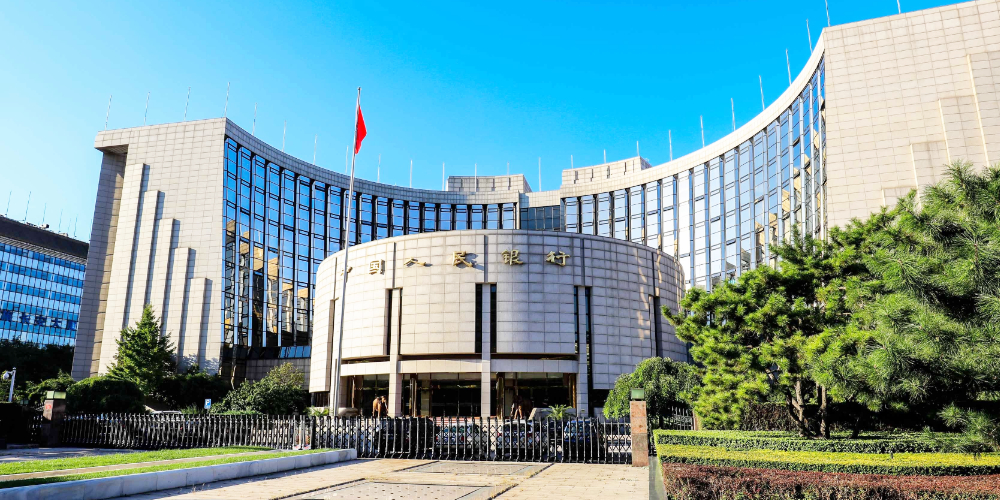
The People’s Bank of China (PBOC) has reportedly filed 84 patents relating to its plans to launch a digital currency. The patents reveal the central bank’s plans which include integrating digital currency wallets into existing retail bank accounts. The potential for the Chinese central bank digital currency to achieve scale from the get-go has put several other central banks worldwide on high alert.
Also read: Trump Views Crypto a Threat, Proposes Countermeasures in New Budget
PBOC’s 84 Digital Currency Patents
The People’s Bank of China (PBOC) has filed 84 patents relating to its plans to launch a digital yuan, the Financial Times reported on Wednesday. The publication claims to have seen and verified all of them, which include:
Proposals related to the issuance and supply of a central bank digital currency, a system for interbank settlements that uses the currency, and the integration of digital currency wallets into existing retail bank accounts.
Several of the patents “indicate that China may plan to algorithmically adjust the supply of a central bank digital currency based on certain triggers, such as loan interest rates,” the news outlet detailed. Some patents “outline mechanisms to allow customers to make deposits with their existing banks and then exchange that for digital currency … Other patents are focused on building digital currency chip cards or digital currency wallets that banking consumers could potentially use, which would be linked directly to their bank accounts.” The patents were uncovered by the Chamber of Digital Commerce.

Patent attorney Marc Kaufman, a partner at Rimon Law who worked with the chamber on the project, commented:
Virtually all of these patent applications relate to integrating a system of digital currency into the existing banking infrastructure.
The majority of the patents are attributed to the PBOC’s Digital Currency Research Institute, with some attributed to state-owned corporations or government subsidiaries. The institute was set up at the end of 2016 to study the possibility of issuing a sovereign digital currency when commercial tradeable cryptocurrencies started gaining traction, the South China Morning Post described. The director of the institute, Mu Changchun, previously said that the digital yuan was almost ready. In December, the official Shanghai Securities News reported Mu explaining that this new currency is not for speculation and would not need the backing of a basket of currencies, emphasizing that it is different from bitcoin and stablecoins.
Global Responses to Digital Yuan
China’s claim to be close to launching its central bank digital currency (CBDC) has put other countries on high alert. In the U.S., Representative Bill Foster pointed out during a House of Representatives’ Committee on Financial Services hearing on Tuesday that besides Facebook’s Libra project, China is the only one in a position to launch its own digital currency and immediately achieve scale. However, both the chairman of the Federal Reserve and the Secretary of the Treasury believe that the U.S. does not need a digital dollar yet.

Meanwhile, the Bank of International Settlements (BIS), the Bank of Canada, the Bank of England, the Bank of Japan, the European Central Bank, the Sveriges Riksbank, and the Swiss National Bank formed a group last month to assess potential cases of central bank digital currencies. According to reports, they will meet in mid-April in Washington on the sidelines of an International Monetary Fund (IMF) conference to discuss this issue. Bank of Japan board member Takako Masai told a news conference in Nara on Feb. 6:
In Japan, we don’t have any plans now to issue central bank digital currencies … But we need to make an effort so we’re ready to respond, in case public demand for central bank digital currencies rises dramatically.
To help central bankers decide whether to issue a central bank digital currency, the World Economic Forum published a toolkit for policymakers last month. It aims to provide high-level guidance and information on different types of CBDCs — such as retail, wholesale, and cross-border — and alternatives in private money for large, small, emerging and developed countries.
In the same month, the BIS released the outcome of a survey it conducted of 66 central banks’ digital currency efforts. The results show that 40% of central banks have progressed from conceptual research to experiments, or proofs-of-concept, and another 10% have developed pilot projects. However, only a few from small and medium-sized economies have progressed to intensive development and have firm intentions to issue a digital currency soon. “Central banks currently not looking at CBDCs are typically from smaller jurisdictions and/or report that they face more pressing priorities,” the survey finds.
What do you think of the PBOC filing 84 patents relating to a central bank digital currency? Let us know in the comments section below.
Disclaimer: This article is for informational purposes only. It is not an offer or solicitation of an offer to buy or sell, or a recommendation, endorsement, or sponsorship of any products, services, or companies. Bitcoin.com does not provide investment, tax, legal, or accounting advice. Neither the company nor the author is responsible, directly or indirectly, for any damage or loss caused or alleged to be caused by or in connection with the use of or reliance on any content, goods or services mentioned in this article.
Images courtesy of Shutterstock.
Did you know you can buy and sell BCH privately using our noncustodial, peer-to-peer Local Bitcoin Cash trading platform? The local.Bitcoin.com marketplace has thousands of participants from all around the world trading BCH right now. And if you need a bitcoin wallet to securely store your coins, you can download one from us here.
The post 84 PBOC Digital Currency Patents Show the Extent of China’s Digital Yuan appeared first on Bitcoin News.
via Kevin Helms
0 comments:
Post a Comment